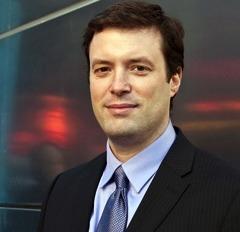Perfect Quotes - Page 148
Joseph Addison (1839). “Essays, Moral and Humorous: Also Essays on Imagination and Taste”, p.52
Joseph Addison (1837). “The Works of Joseph Addison: The Spectator, no. 1-314”, p.329
"Leisure, the Basis of Culture" by Josef Pieper, translated by Gerald Malsbary, South Bend, Indiana: St. Augustine's Press, (p. 106), 1998.
Joris-Karl Huysmans (1972). “L
-bas (Down There).”, p.30, Courier Corporation
Joni Eareckson Tada (2011). “Glorious Intruder: God's Presence in Life's Chaos”, p.35, Multnomah
Jonathan Edwards (1829). “The Works of President Edwards: With a Memoir of His Life”, p.706
John Updike (1990). “Rabbit Angstrom: a tetralogy”, Everyman's Library
John Stuart Mill (1870). “Utilitarianism”, p.25
John Stuart Mill (2017). “JOHN STUART MILL - Ultimate Collection: Works on Philosophy, Politics & Economy (Including Memoirs & Essays): Autobiography, Utilitarianism, The Subjection of Women, On Liberty, Principles of Political Economy, A System of Logic, Ratiocinative and Inductive and More”, p.71, Madison & Adams
John Ruskin (1871). “Selections from the Writings of John Ruskin”, p.421
John Ruskin (1853). “The Stones of Venice: The sea-stories”, p.161
John Ruskin (1854). “On the nature of Gothic architecture: and herein of the true functions of the workman in art. Being the greater part of the 6th chapter of the 2nd vol. of 'Stones of Venice'. [48 p.].”, p.14
John Ruskin (1905). “The Works of John Ruskin”
John Ruskin (1862). “pt. I. Of genral principles. pt. II. Of truth. v. 4. pt. v. Of mountain beauty”, p.352
There is a state of perfect peace with God to be attained under imperfect obedience.
"The Works of John Owen".
John Milton, Henry John Todd (1852). “The Poetical Works of John Milton: With Notes of Various Authors; and with Some Account of the Life and Writings of Milton, Derived Principally from Original Documents in Her Majesty's State-paper Office”, p.99
John Locke, John W. Yolton (1977). “The Locke Reader: Selections from the Works of John Locke with a General Introduction and Commentary”, p.63, CUP Archive







